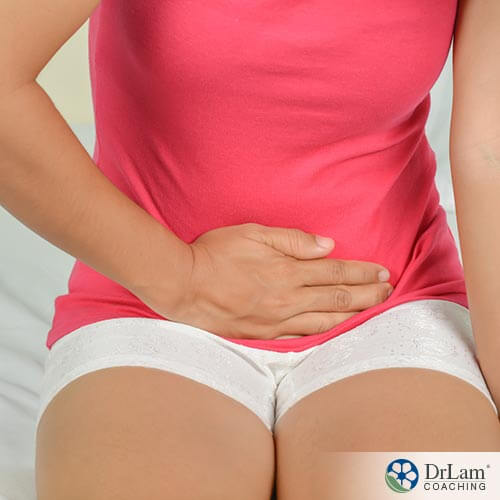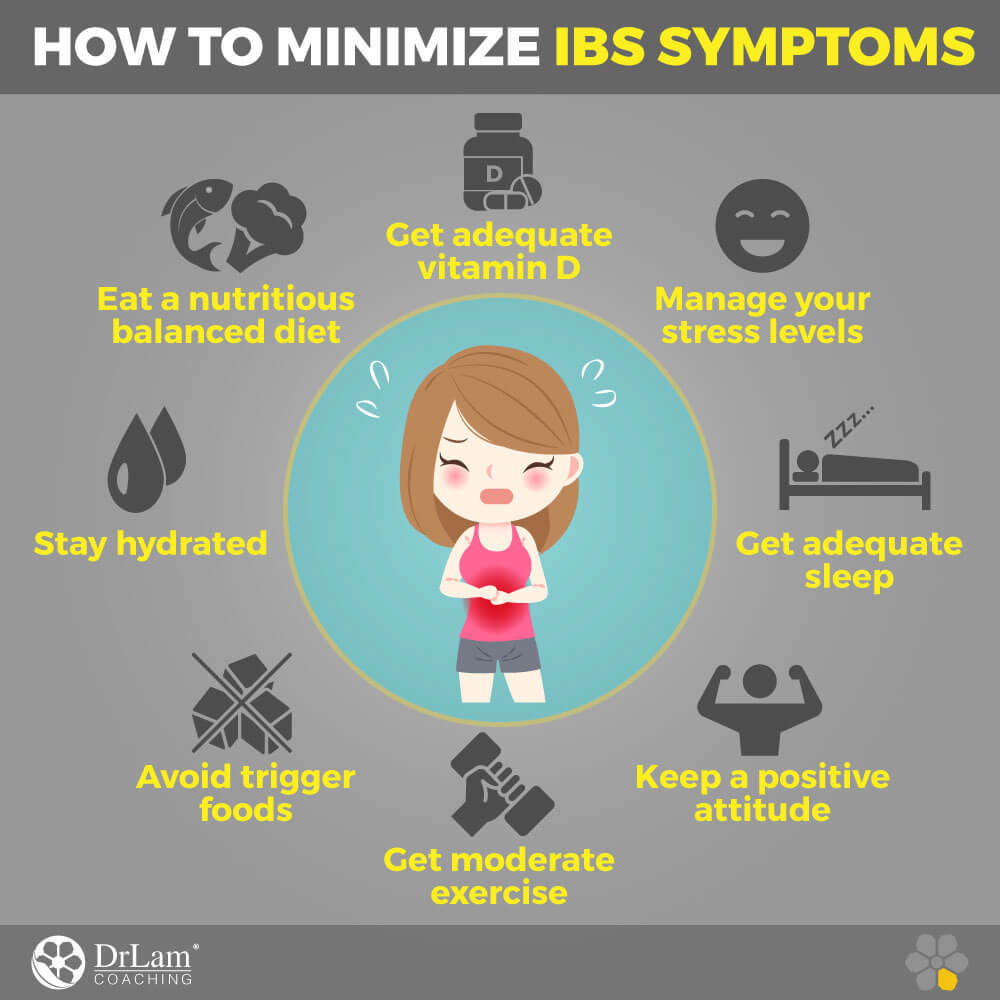IBS, or irritable bowel syndrome, can deteriorate the quality of your life. Estimates are that up to 20 percent of Americans suffer from the condition. The disorder can often go undiagnosed because people are embarrassed to discuss it. The exact cause for IBS is not yet clear. However, new studies reveal that vitamin D and IBS are interconnected. Further, vitamin D could be helpful in alleviating painful symptoms associated with IBS. In addition, vitamin D intake could help prevent other health problems including certain types of cancer. Providing your body with adequate amounts of vitamin D is essential for optimal well-being.
 Vitamin D and IBS are closely related. A study published in the European Journal of Clinical Nutrition states that vitamin D could be helpful in easing painful symptoms linked to irritable bowel syndrome. Under the guidance of Bernard M. Corfe, MD, of the Department of Oncology and Metabolism, and molecular gastroenterology research group, a team of scientists integrated and reviewed the available research data from previous studies on vitamin D and irritable bowel syndrome. The result of the study revealed a high prevalence of vitamin D deficiency in people with IBS.
Vitamin D and IBS are closely related. A study published in the European Journal of Clinical Nutrition states that vitamin D could be helpful in easing painful symptoms linked to irritable bowel syndrome. Under the guidance of Bernard M. Corfe, MD, of the Department of Oncology and Metabolism, and molecular gastroenterology research group, a team of scientists integrated and reviewed the available research data from previous studies on vitamin D and irritable bowel syndrome. The result of the study revealed a high prevalence of vitamin D deficiency in people with IBS.
During the research, an extensive analysis was conducted in three randomized controlled trials and four observational studies. Researchers found that vitamin D could reduce painful symptoms associated with IBS such as diarrhea, bloating, and constipation. Further, during the study, researchers observed that a high dose of daily vitamin D in one woman significantly improved IBS symptoms. This gives promising evidence that vitamin D and IBS are interlinked.
Despite limited evidence, the present findings are enough to suggest taking vitamin D to improve IBS symptoms. Scientists have also noted that there is a need for further study in this area. From the study, it is evident that those with IBS should consider going for a vitamin D level test.
Irritable bowel syndrome or IBS is basically a chronic gastrointestinal disorder. Also referred to as irritable colon, spastic colon, spastic colitis, or mucous colitis, IBS is separate from inflammatory bowel disease (IBD) which is more serious and complicated. Estimates show that every two in ten people in the UK suffer from IBS.
Groups of intestinal symptoms occur together in IBS. The duration and severity of the symptoms can differ from person to person. Though the condition doesn’t carry any risk for gastrointestinal cancer, it can significantly affect the quality of your life. IBS affects the intestinal tract with symptoms of chronic intestinal discomfort.
Symptoms associated with IBS include:
In IBS, lower abdominal pain is the most common symptom. The severity of pain tends to decrease after a bowel movement. Diarrhea can cause a sudden urgent urge to have a bowel movement, which is often difficult to restrict. It has been observed that most IBS sufferers express that frequent bowel movements are a major stress and cause for avoiding social situations and the office.
There is very little evidence of how and why the conditions develop. However, it is known that stress and diet can aggravate IBS symptoms. Depression, chronic infection, anxiety, GI infection, low immunity, antibiotics, and certain medications can also trigger the symptoms.
The problem can often cause embarrassment. This is one of the main factors which hold back some people from getting diagnosed with the condition in the first place. This new finding on vitamin D and IBS can prove to be helpful for IBS suffers, especially those who silently live with the painful condition out of embarrassment.
Over half of the people with IBS complain of fatigue. According to one study, over 160 adults with IBS have reported low stamina, which limits their energy at work, in social interactions, and during leisure time. IBS has also been linked with insomnia and feeling restless in the morning. According to one study, among 112 adults with IBS, over 13 percent complained of poor sleep quality. Another study found that 50 men and women with IBS felt less refreshed even after sleeping for an hour longer when compared to those without IBS. Further, fatigue and poor sleep quality are known to worsen gastrointestinal symptoms.
Fatigue can be common in IBS. However, if you frequently experience extreme fatigue along with symptoms of low energy levels, brain fog, low concentration levels, insomnia, difficulty in waking up, constipation, anxiety, stubborn weight gain, or craving for salty and fatty food then you could also have Adrenal Fatigue Syndrome (AFS). It is interesting to know that IBS and adrenal fatigue are interrelated and their symptoms can worsen with stress.
 Your body is equipped with NeuroEndoMetabolic (NEM) Stress Response System which protects against stress. During stressful conditions, the NEM signals your adrenal glands for the secretion of the anti-stress hormone cortisol. However, when stress is continuous, your adrenals get overburdened, thus affecting cortisol secretion. Eventually, your body loses the ability to deal with stress, which can leave you fatigued.
Your body is equipped with NeuroEndoMetabolic (NEM) Stress Response System which protects against stress. During stressful conditions, the NEM signals your adrenal glands for the secretion of the anti-stress hormone cortisol. However, when stress is continuous, your adrenals get overburdened, thus affecting cortisol secretion. Eventually, your body loses the ability to deal with stress, which can leave you fatigued.
In advanced stages of AFS, the body begins to slow down metabolism in an attempt to conserve energy for survival. Your gut functioning also slows down in the process thus leaving the food in the gut for a longer duration. This increased transit period for food leads to constipation. IBS with AFS can cause a mild form of consistent constipation which can intermittently take the course of diarrhea when your body is under stress.

As the exact cause of IBS is not clear, the recovery process generally focuses on relieving symptoms and enhancing quality of life. Focusing on anti-inflammatory foods and autonomic nervous system balance is key. Mild IBS can be reversed by making healthy lifestyle choices. As studies show that vitamin D and IBS are interrelated, make sure to get your vitamin D levels tested. Most IBS suffers have been reported to have vitamin D deficiency.
These steps can help minimize IBS syndrome:
In certain cases, IBS can also be followed by fatigue.
IBS with AFS can be debilitating and more challenging. A strategic approach is required to deal with the problem as people with AFS tend to have a weak system. In such cases, IBS symptoms can exert more stress on the body and worsen the problem. Following the above steps along with the adrenal fatigue diet can be helpful in IBS with AFS. With studies linking vitamin D and IBS, it is also vital to include the nutrient in your everyday diet for relieving IBS symptoms.
Vitamins are nutrients which your body is incapable of producing. Therefore, they need to be acquired through dietary sources. Vitamin D is actually a pro-hormone which your body can synthesize in the presence of natural sunlight.
In lower latitudes and in the summer, the body is capable of producing adequate vitamin D with 5 – 10 min of sun exposure two to three times a week. However, vitamin D breaks down quickly which makes it soon run out. In higher latitudes or in the winter, sunlight lacks the UV levels to produce enough vitamin D, making it impossible to produce enough even if you stood outside all day. This is why studies reveal that a considerable percentage of the global population has a vitamin D deficiency.
Some of the symptoms of vitamin D deficiency include:

Prolonged periods of vitamin D deficiency can lead to obesity, fibromyalgia, osteoporosis, hypertension, diabetes, and chronic fatigue syndrome. Due to the association between vitamin D and IBS, the nutrient deficiency also raises the risk of IBS.
People with homebound jobs, night work shifts, confined indoors, or living in the northern latitudes have reduced exposure to sunlight which raises the chances of being vitamin D deficient. Therefore, if this describes you, you need to make sure you are getting vitamin D from food or a supplement. Naturally sourced vitamins and minerals are usually the best. However, most food sources don’t contain enough vitamin D, so a supplement is often necessary.
Natural sources of vitamin D include:

Scientific studies suggest that vitamin D can be helpful in reducing IBS symptoms. Apart from the direct relationship between vitamin D and IBS, the nutrient is also essential for health. Vitamin D helps in weight management, promotes healthy bones and muscles, reduces the risk of colon and breast cancer, boosts immunity, and supports mental health, musculoskeletal health, and gut health. Vitamin D deficiency has been linked to increased risk of inflammatory bowel disease and colorectal cancer.
Vitamin D plays a big role in:
Vitamin D helps to regulate the level of phosphorus and calcium in the blood which is vital for maintaining bone health. It assists your body in calcium absorption. Vitamin D deficiency can cause muscular weakness and osteoporosis, especially among post-menopausal woman. Inadequate vitamin D in children can lead to rickets.
Studies show that vitamin D helps fight cancer by retarding cancer cell growth and destroying the cancer cells. It also prevents new cells from growing in the cancerous tissues thus preventing the disease from spreading further.
Clinical trials show that vitamin D can considerably reduce the risk of diabetes. Studies demonstrate that providing an adequate amount of vitamin D in infants dramatically reduced their risk of developing type-1 diabetes up to the age of 32 by 88 percent. Vitamin D deficiency can negatively affect glucose tolerance and insulin secretion.
Research suggests that vitamin D may help in regulating mood and reducing depression. According to one study, in people with depression, vitamin D supplements were shown to reduce the symptoms.
Studies show that vitamin D and calcium supplements, when taken together, can help you lose weight by suppressing your appetite.
Being aware of the relationship between vitamin D and IBS can be helpful in reducing the risk of IBS. Incorporating vitamin D in your diet is essential to preventing diseases and staying healthy. The minimum vitamin D intake is 400 IU per day, while the healthy upper limit is a source of controversy, around at least 4000 IU. Excessive vitamin D can lead to hardening of lungs, blood vessels, heart, and kidney. It can also cause over-calcification of bones, metallic taste, constipation, diarrhea, vomiting, dry mouth, nausea, headache, and loss of appetite.
 IBS or irritable bowel syndrome can make life difficult. The condition is recognized as a chronic intestinal disorder which causes irritable bowel. Bloating, diarrhea, constipation, diarrhea, cramping, gas, altered bowel movements, abdominal pain, and food intolerance are some of the associated symptoms. The exact cause for IBS is unclear. Interestingly, clinical tests reveal that vitamin D and IBS are interrelated. The tests found that vitamin D deficiency is prevalent among IBS sufferers. Further, studies suggest that vitamin D could be helpful in easing painful symptoms of IBS.
IBS or irritable bowel syndrome can make life difficult. The condition is recognized as a chronic intestinal disorder which causes irritable bowel. Bloating, diarrhea, constipation, diarrhea, cramping, gas, altered bowel movements, abdominal pain, and food intolerance are some of the associated symptoms. The exact cause for IBS is unclear. Interestingly, clinical tests reveal that vitamin D and IBS are interrelated. The tests found that vitamin D deficiency is prevalent among IBS sufferers. Further, studies suggest that vitamin D could be helpful in easing painful symptoms of IBS.
IBS in itself is debilitating, and when accompanied by fatigue, it can be more stressful. Though neither of these conditions is life-threatening, IBS with fatigue can drastically impair your quality of life. Providing your body with adequate amounts of vitamin D, an adrenal fatigue diet packed with nutrition, a mild body detox, regular exercise, and managing your stress levels are some of the best ways to alleviate IBS and fatigue.
If you would like to know more about or need assistance in dealing with IBS, the team at Dr. Lam Coaching can help. We offer a free** no-obligation phone consultation at +1 (626) 571-1234. We will privately discuss your symptoms and various options. You can also send us a question through our Ask The Doctor system by clicking here.
Understanding the underlying relationship between vitamin D and IBS can be helpful in attaining better health. Studies show that most IBS sufferers are vitamin D deficient. Vitamin D could prove helpful in relieving IBS symptoms. IBS can exert stress on the body resulting in fatigue. Getting enough vitamin D helps fight fatigue, osteoporosis, insomnia, and cancer.
